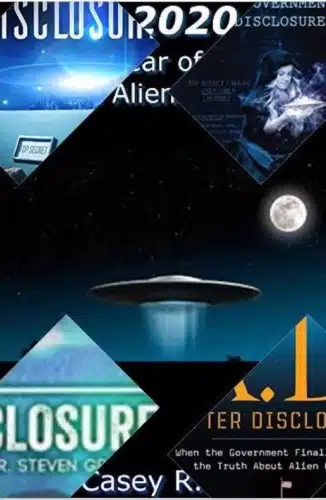The Trap of Disclosure

Captain Mark Richards states that disclosure has been delayed but that many of the alien races want it so they can openly do business.
Steven Greer, Richard Dolan, and others have made a living speculating about it or offering its promise.
NICAP called for disclosure in the 1950s. Citizen Committees have offered their view on disclosure. Anjali offers the hope for the ultimate disclosure.
Every year is said to be the year of alien disclosure. Yet, what is being on contemplated? With all those advocating for disclosure, the answer should be easy but the term is often used as a generic cover without regard to its implications.
Disclosure first of all asserts that there is something to disclose. Perhaps that is a given. If there is nothing to disclose the UFO industry would be out of business. There would be no need to attend conferences, listen to podcasts, pay for webinars, or buy books.
Yet, how do we know if disclosure has taken place? The Air Force’s release of a report about Roswell, identifying the crash as a balloon, did nothing to assure believers. The Preliminary Assessment on Unidentified Aerial Phenomenon did not resolve anything. Some countries have opened their UFO files, but the demand is always for more.

The Day After Disclosure is easy to imagine. Ratter than a parade it would be marked by infighting and denial.
Proponents of the Secret Space Program will want to confirm that there are bases on the moon and Mars – or battles against aliens. As Corey Goode stated, Mark Richards would want to be acknowledged as a captain and released from prison.
Roswell enthusiasts would demand disclosure documenting a saucer crash and retrieval. Area 51 researchers might not be satisfied unless there was an unguided tour and they saw the plans to develop our own technology based on element 115. If the government acknowledges the grays, others would want to know about the mantids or nordics. Anything short of the holy grail of what pundits expect would be dismissed as incomplete disclosure.
Ultimately, disclosure is about meeting the aliens, but even then people would be debating what is the hidden alien agenda and what they are hiding.
Related to this is that people would ask what else there is to disclose and advance new speculation about that. There would be new conferences to explain what was revealed and what might still be open to speculation. Some would assert that disclosure was simply a device to lull us into a false sense of security. We already see that kind of debate.
If nuts and bolts are offered, others would want psychic material. Disclosure of aliens in this sector of the galaxy would lead others to demand information about time travel, alternate universes and dimensions, or other similar topics. Some would not believe any disclosure that does not involve raising your personal frequencies.
The industry would continue – the only difference might be if there are actual aliens to give a seminar. Would some disclosure advocates complain about competition?
Ultimately, there is no such thing as disclosure. People have too much invested in offering inside information, complaining about secrecy or advocating for disclosure to be satisfied by whatever is revealed. The UFO Industrial Complex has grown way beyond it all.
A more philosophical approach by Douglas Giles asks What If There’s Nothing To Disclosure?




